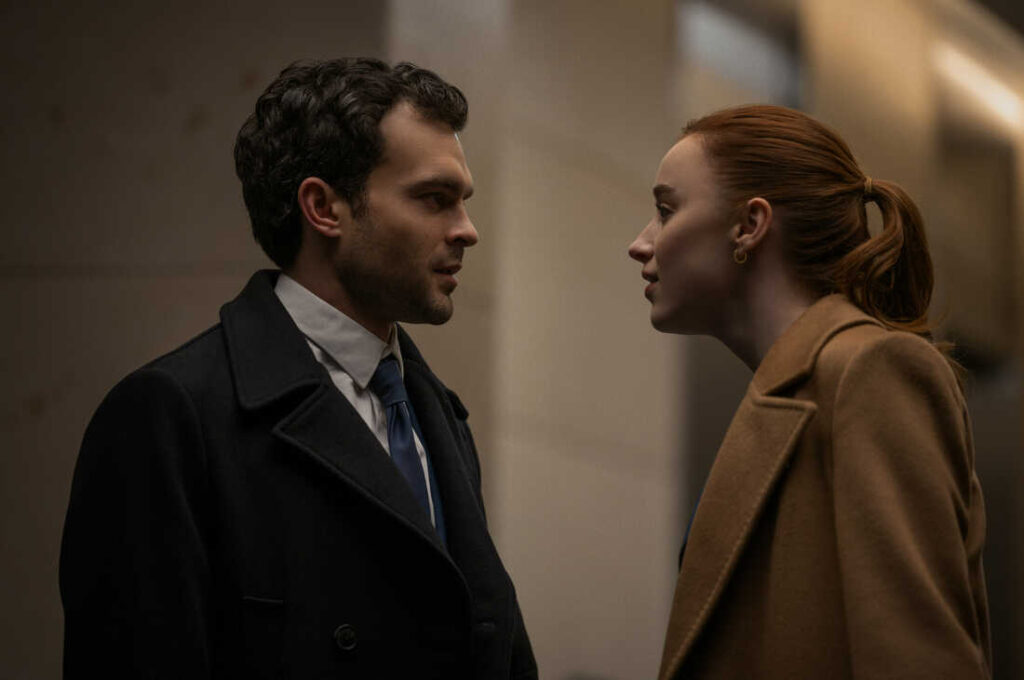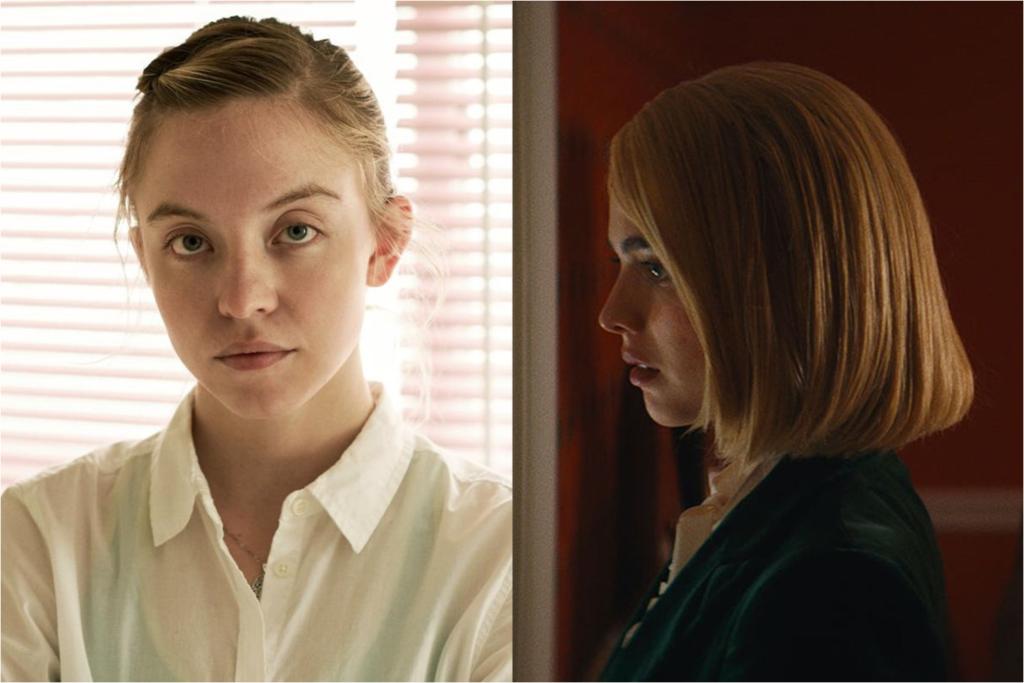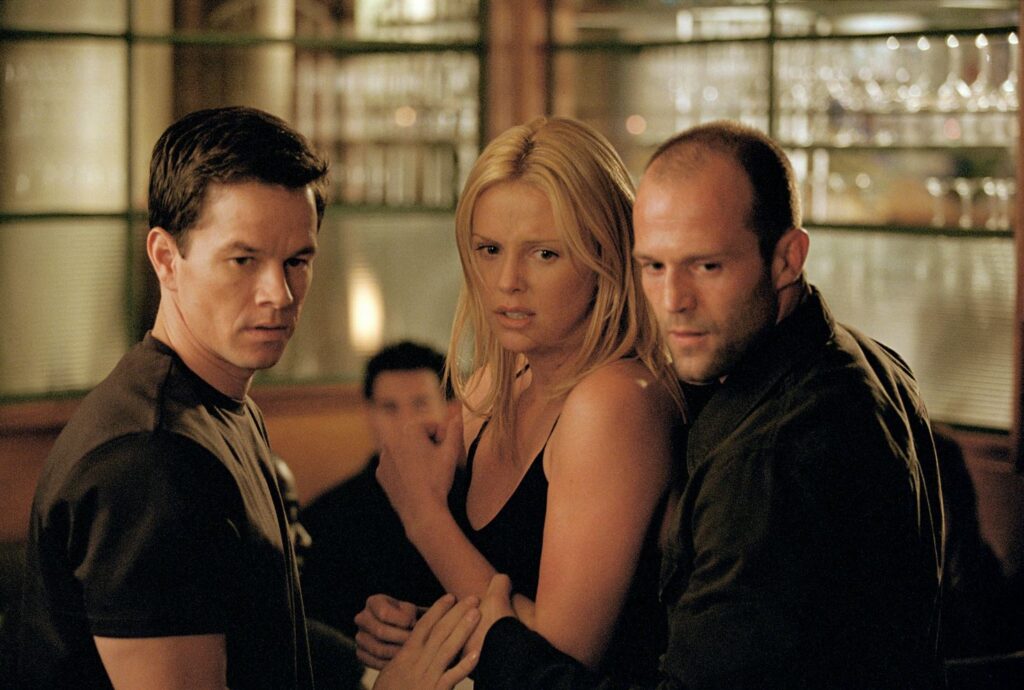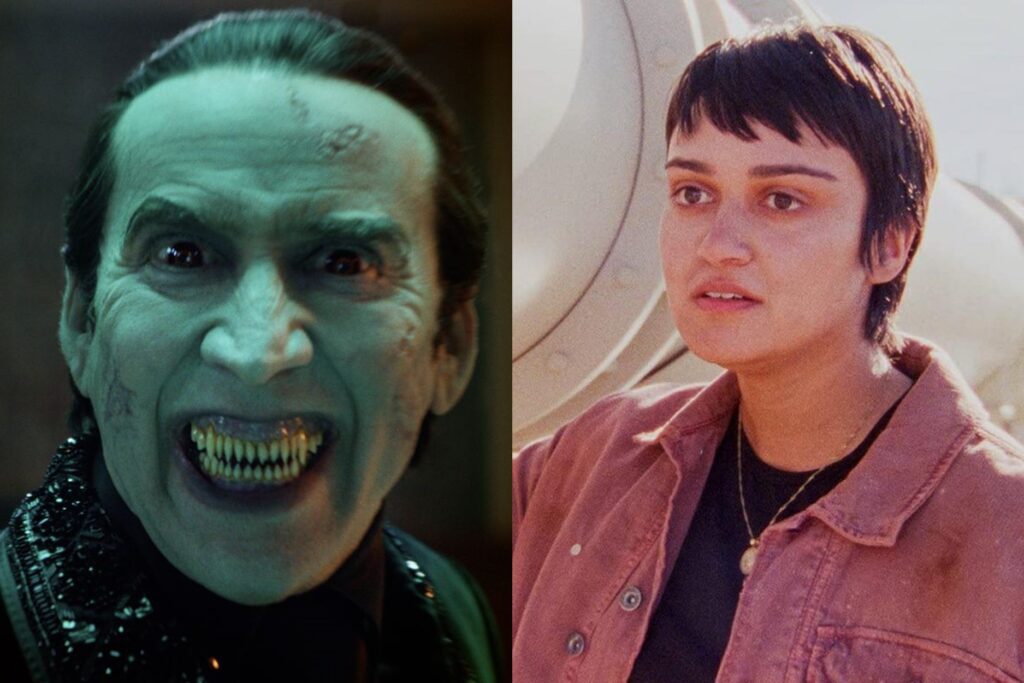Fair Play: Investment Wank

The power couple at the center of Fair Play both work at a pressure-cooker investment bank, so it’s fitting that the movie opens with its own form of aggressive sales pitch. Emily (Phoebe Dynevor) and Luke (Alden Ehrenreich) are cavorting at a wedding, where they sneak into the bathroom for a quickie. Luke performs some moan-inducing cunnilingus, but Emily’s gasps turn from pleasure to shock when she realizes that her menstruation has bloodied both his face and her dress. Yet they recover their poise (“You look like you slaughtered a chicken,” he giggles), then sneak out a back door and race home to their swanky Manhattan apartment, where they enthusiastically finish what they’d started.
The purpose of this introduction is twofold. On a character level, it’s designed to establish Luke and Emily’s mutual passion—an ardor whose strength and durability will be tested as the film unspools. And in terms of style and imagery, it announces its provocative intent—not as a product of pornography (the simulated thrusting and the glimpses of nudity are more coy than explicit), but as a piece of proudly sexed-up entertainment. Here at last, writer-director Chloe Domont proclaims, is an adult movie for adult audiences. Read More




